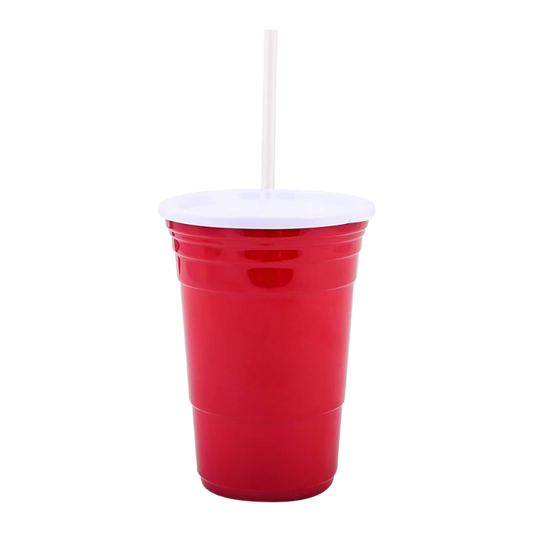How to Clean Reusable Drinkware: Essential Tips for Plastic, Glass, and Stainless Steel Bottles and Mugs
How to Clean Reusable Drinkware: Essential Tips for Plastic, Glass, and Stainless Steel Bottles and Mugs
Keeping your reusable drinkware clean is key to safe, fresh hydration and making your eco-friendly bottles and mugs last longer. This practical guide covers expert tips for daily care and deep cleaning by material type—plastic, glass, and stainless steel—as well as lid maintenance, harmful cleaners to avoid, and storage advice. Follow these simple steps to protect your health and the environment with every sip.
Key Takeaways
- Daily washing with mild soap and warm water prevents stains and bacteria.
- Deep clean monthly with vinegar or baking soda to remove odors.
- Disassemble and clean lids and seals thoroughly to avoid hidden mold.
- Avoid harsh chemicals, abrasive scrubbers, and extreme temperature changes.
- Inspect regularly and replace damaged parts to maintain safety and hygiene.
- Choosing quality brands with warranties helps ensure durability and sustainability.
Table of Contents
- 1. Daily Cleaning Tips for Reusable Plastic Drinkware
- 2. Best Practices for Cleaning Glass Bottles and Mugs
- 3. How to Clean Stainless Steel Drinkware for Durability and Hygiene
- 4. Lid and Seal Cleaning: Don’t Overlook Hidden Nooks
- 5. Avoid These Harmful Cleaners and Practices
- 6. Drying and Storage Tips to Prevent Mold and Odors
- 7. Inspect Regularly and Replace When Needed
- 8. Choosing Quality Brands with Great Warranties
- 9. Environmental Benefits of Properly Maintaining Reusable Drinkware
- Summary Checklist for Top Drinkware Cleaning
- Conclusion
1. Daily Cleaning Tips for Reusable Plastic Drinkware
Plastic reusable bottles and mugs are lightweight and affordable but need careful cleaning to prevent odor, staining, and bacteria buildup.
- Rinse your plastic bottle after every use, even when used for plain water.
- Wash with warm water and mild dish soap using a soft bottle brush or sponge.
- Avoid abrasive scrubbers that cause tiny scratches where bacteria can hide.
- Do not use the dishwasher unless the bottle is marked dishwasher safe.
- Avoid exposing plastic to heat, freezing, or boiling water to prevent warping or chemical leaching.
For deep cleaning once a month:
- Soak overnight in a solution of one part white vinegar to four parts water.
- Alternatively, use a baking soda paste or soak to neutralize odors.
- Rinse thoroughly afterward to remove residue.
Replace plastic drinkware if there is warping, cracking, or persistent odors.
For detailed tips, see SinoGlass's cleaning and care tips.
2. Best Practices for Cleaning Glass Bottles and Mugs
Glass bottles provide pure flavor with no chemical leaching but can be fragile.
- Wash daily with warm soapy water using a soft bottle brush.
- Remove lids and clean separately, usually by hand.
- Use natural odor removers like lemon juice or diluted baking soda for deep cleaning.
- Avoid extreme temperature changes to prevent cracking.
- Inspect frequently for chips, cracks, or fogging; retire damaged bottles.
Soak glass bottles in vinegar or baking soda solutions for thorough cleaning.
Explore more at Corkcicle’s blog.
3. How to Clean Stainless Steel Drinkware for Durability and Hygiene
Stainless steel drinkware is durable with natural antimicrobial properties.
- Wash after each use with warm water, mild soap, and a bottle brush.
- Avoid steel wool or abrasive sponges to prevent scratches and rust.
- For deep cleaning, use a baking soda paste or soak with vinegar and hot water overnight.
- Clean lids, seals, and removable pieces with brushes and soak separately.
- Rinse all parts thoroughly to remove residue.
- Inspect for dents, rust, or seal damage and replace parts as needed.
Elephant Box notes stainless steel’s chromium layer protects against bacteria and recommends monthly deep cleaning with baking soda and Milton sterilizing liquid.
Learn more at Elemental Bottles.
4. Lid and Seal Cleaning: Don’t Overlook Hidden Nooks
Lids, seals, gaskets, and straws can trap grime and mold in tight crevices.
- Always disassemble lid parts for thorough cleaning.
- Use small brushes, pipe cleaners, or cotton swabs to clean narrow spaces.
- Soak removable parts in vinegar or baking soda water for deep cleaning.
- Rinse and dry completely before reassembling.
- Store bottles with lids off to prevent moisture and mold.
Detailed lid care is available at Corkcicle’s blog.
5. Avoid These Harmful Cleaners and Practices
Using certain agents or actions can damage your drinkware or impact health.
- Never use bleach, ammonia, chlorine, or industrial cleaners not rated food-safe.
- Avoid abrasive scrubbers like steel wool or harsh sponges.
- Don’t expose drinkware to boiling, freezing, or microwaving.
- Use mild dish soap, baking soda, and diluted vinegar solutions for safe cleaning.
Gentle cleaners preserve your drinkware’s integrity and your health.
6. Drying and Storage Tips to Prevent Mold and Odors
- Air dry bottles and parts upside down with lids off.
- Remove seals and gaskets to dry separately.
- Store bottles with lids off to allow airflow.
- Deep clean weekly to address residue buildup.
Proper drying extends lifespan and keeps beverages tasting fresh.
7. Inspect Regularly and Replace When Needed
- Look for cracks, chips, or fogging in glass bottles.
- Check plastic for warping, discoloration, or smells.
- Monitor stainless steel for rust, dents, and seal condition.
- Replace worn lids, seals, or bottles to maintain hygiene and durability.
Routine checks keep your hydration safe and enjoyable.
8. Choosing Quality Brands with Great Warranties
- Elephant Box: Stainless steel bottles with antimicrobial chromium layer and 15-year warranty plus spare parts.
- SinoGlass: Plastic, glass, and stainless steel drinkware with specialized care guidelines and customization.
Quality means longevity and less waste.
9. Environmental Benefits of Properly Maintaining Reusable Drinkware
- Stainless steel and glass have low environmental footprints and high recyclability.
- Poorly maintained plastic bottles risk shedding microplastics and shorter life spans.
- Caring for your bottles reduces waste and supports sustainability.
Learn more about environmental impact at MamaVation's investigation.
Summary Checklist for Top Drinkware Cleaning
- Clean daily with mild soap and warm water.
- Deep clean weekly with vinegar or baking soda solutions.
- Disassemble and clean all removable lid parts.
- Avoid harsh chemicals, abrasive tools, and extreme temperatures.
- Air dry upside down with lids off; dry seals separately.
- Inspect regularly and replace damaged parts.
- Choose quality brands with warranties and spare parts.
Conclusion
Taking care of your reusable plastic, glass, or stainless steel drinkware is simple but essential. With daily cleaning, periodic deep cleans, lid maintenance, and cautious handling, you ensure fresh taste, hygiene, and longer product life. These habits not only protect your health and enhance your drinking experience but actively support environmental sustainability by reducing waste. Make this easy care routine part of your everyday lifestyle, and your reusable bottle or mug will be a reliable hydration companion for years ahead.

















